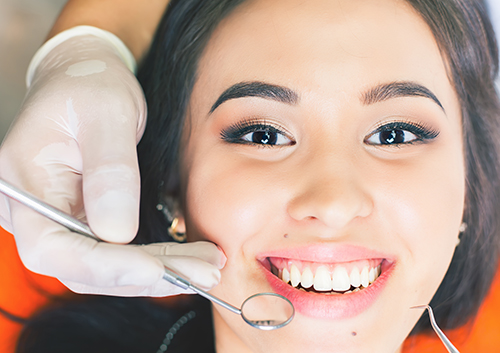Keeping Our Teeth Healthy as We Age
August 18th, 2021

Decades ago, it was just expected that getting older meant losing teeth. But today’s dental practices and treatments help us defy expectations. How can we keep our teeth healthy as we age? Here are some great habits to continue or begin at any time of life:
- Brush and Floss Regularly
Brushing and flossing two minutes carefully twice a day is a habit we should never break. If using a manual toothbrush has become difficult, an electric model might be just what you need. We also have many suggestions if you have mobility or other issues, so please talk to Dr. James Robson about making regular dental hygiene as comfortable and effective as possible.
- Keep Up with Exams and Cleanings
As we age, gum recession is common. This recession leaves the root areas of our teeth more exposed, and more vulnerable to cavities. Also, old fillings can break or loosen, and cavities can develop around their edges. Keeping a regular schedule of exams and cleanings at our East Lyme, CT office helps us discover any problems before they become serious.
- Let Us Know about Changes in Your Health and Medications
If you are taking certain medications, you are at risk for developing a condition called dry mouth, where saliva production greatly decreases. Since saliva washes away the food particles that fuel bacteria growth, reduces acidic elements in the mouth that weaken enamel, and helps fight diseases, dry mouth sets the stage for increased chances of cavities and gum disease. If you are experiencing this condition, we have suggestions for hydration, dental rinses, and sugarless gums that can help.
- Prevent Gum Disease
Regular brushing, professional cleanings, and routine check-ups are the best way to keep your gums healthy. Since untreated gum disease is one of the leading causes of tooth loss in older adults, call us if you have any symptoms such as puffy, red, or swollen gums, bleeding, or persistent bad breath. We can treat periodontitis at any stage, but prevention is always best.
- Don’t Smoke
Studies show a link between smoking and the health of our teeth and gums, as well as a much greater risk of oral cancer. It is never too late to stop smoking! We have suggestions on ways to quit—please let us provide them.
Feel free to talk to us about any concerns you might have. With proper dental care, your teeth can last a lifetime. And that’s a great expectation!



